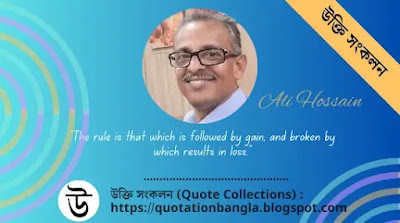Siddharth Mukherjee's quotes about Cancer
Siddharth Mukherjee's quotes about Cancer
“If there's a seminal discovery in oncology in the last 20 years, it's that idea that cancer genes are often mutated versions of normal genes,”
— Siddharth Mukherjee
Read this Quote in Bengali
Know Source and Context of this Quote
An Interview with NPR, November 17, 2010, 11:59 AM ET
‘The Emperor of All Maladies: A Biography of Cancer’ (Pulitzer prize winner Book)
By Siddhartha Mukherjee
[ a staff oncologist at Columbia University Medical Center.]
Some sections of this Interview given below : Full Interview is Here
GROSS: Is our genetic system programmed to get cancer?
Dr. MUKHERJEE: Well, you know, it's always hard to answer questions which are -which speculate about evolution, but this much is for sure: The very genes that allow cells to proliferate, to survive, to move, to adapt to circumstances, to resist poisons, those very genes, when they become corrupted, are genes that are co-opted by cancer cells to become cancer.
So there is of course a deep link, and as the book suggests, if there's a seminal discovery in oncology in the last 20 years, it's exactly that. It's the idea that cancer genes are often, this is not always true, but are often mutated versions of normal genes. And that moment, the arrival of that moment really chilled the world of cancer biology. The book describes that moment. It really sent a kind of a chill down the spine of cancer biology. Because here we were hoping that cancer would turn out to be some exogenous event, a virus or something that could be then removed from our environment or removed from our bodies and therefore we would be rid of it.
But the idea that cancer genes are sitting inside each and every one of our chromosomes, just waiting to be corrupted or inactivated and thereby unleashing cancer is of course one of the seminal ideas of oncology. But it also, it's a -as you can imagine - a deep philosophical idea about what it means to be a human being and how sort of the seeds of cancer are sort of already inlaid into our chromosomes.





Comments
Post a Comment